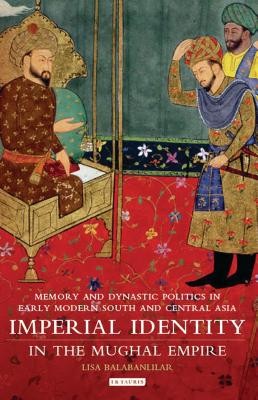
- We will send in 10–14 business days.
- Author: Lisa Balabanlilar
- Publisher: I. B. Tauris & Company
- ISBN-10: 1784531286
- ISBN-13: 9781784531287
- Format: 13.7 x 21.6 x 2 cm, softcover
- Language: English
- SAVE -10% with code: EXTRA
Reviews
Description
Having monopolized Central Asian politics and culture for over a century, the Timurid ruling elite was forced from its ancestral homeland in Transoxiana at the turn of the sixteenth century by an invading Uzbek tribal confederation. The Timurids travelled south: establishing themselves as the new rulers of a region roughly comprising modern Afghanistan, Pakistan and northern India, and founding what would become the Mughal Empire (1526-1857). The last survivors of the House of Timur, the Mughals drew invaluable political capital from their lineage, which was recognized for its charismatic genealogy and court culture - the features of which are examined here. By identifying Mughal loyalty to Turco-Mongol institutions and traditions, Lisa Balabanlilar here positions the Mughal dynasty at the centre of the early modern Islamic world as the direct successors of a powerful political and religious tradition.
EXTRA 10 % discount with code: EXTRA
The promotion ends in 20d.22:41:42
The discount code is valid when purchasing from 10 €. Discounts do not stack.
- Author: Lisa Balabanlilar
- Publisher: I. B. Tauris & Company
- ISBN-10: 1784531286
- ISBN-13: 9781784531287
- Format: 13.7 x 21.6 x 2 cm, softcover
- Language: English English
Having monopolized Central Asian politics and culture for over a century, the Timurid ruling elite was forced from its ancestral homeland in Transoxiana at the turn of the sixteenth century by an invading Uzbek tribal confederation. The Timurids travelled south: establishing themselves as the new rulers of a region roughly comprising modern Afghanistan, Pakistan and northern India, and founding what would become the Mughal Empire (1526-1857). The last survivors of the House of Timur, the Mughals drew invaluable political capital from their lineage, which was recognized for its charismatic genealogy and court culture - the features of which are examined here. By identifying Mughal loyalty to Turco-Mongol institutions and traditions, Lisa Balabanlilar here positions the Mughal dynasty at the centre of the early modern Islamic world as the direct successors of a powerful political and religious tradition.


Reviews